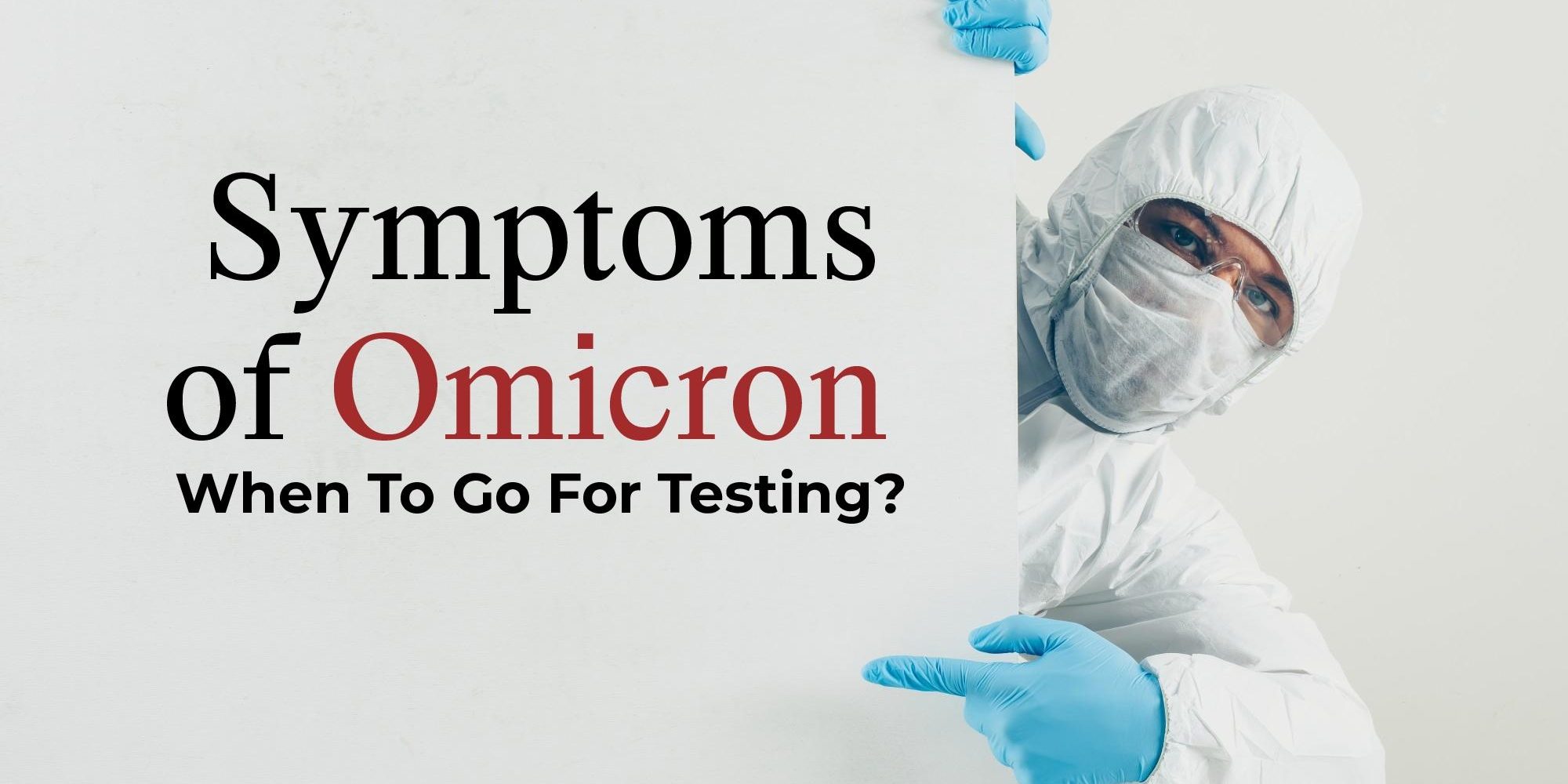Introduction
A rise in the number of omicron cases worldwide has left many experts bewildered about what they already know about COVID-19 and what new can be seen with the variant. Though many of the things remain uncertain, the doctors and researchers are starting to learn more about Omicron (a highly contagious coronavirus with a shorter incubation period) and how it affects healthy individuals who are vaccinated, non-vaccinated, or earlier had a COVID-19 infection.
So, how do people get to know that they are exposed to Omicron?
It has been seen that many patients with the omicron variant of coronavirus appear to get sick faster and have symptoms that vary from those of other COVID-19 variants. According to early evidence, it has been noticed that in most people (especially those who are fully vaccinated particularly along with booster dose), the omicron cause milder illness that can mimic a common cold, a different form of coronavirus. The most prominent symptoms of omicron that appears in most patients include:
- Cough
- Tiredness or fatigue
- Sore throat
- Runny nose or nasal congestion
- Headache
- Fever
The above-mentioned typical symptoms are found to be more serious in non-vaccinated people or those who have not had a booster. After exposure to the omicron variant, infected people tend to develop symptoms in as little as three days or less or after a full week. For most patients, these symptoms remain for only three to five days. Well, it is most likely that only those patients who are not vaccinated are sicker and may require emergency care and hospital stays in ICU as compared to other vaccinated individuals.
In severe COVID-19 cases, the patients may experience long-term symptoms like irregular heart rhythms and crushing fatigue, and other issues for months after the exposure. These were observed during the first wave of the pandemic, and this variant is assumed to lead to such a situation too.
When the patient must go for COVID-19 testing?
As the Omicron variant has a potential of a shorter incubation period, the doctors advise everyone who has been in contact with an infected individual to get tested about 72 hours (i.e. after three days) post-exposure to check if they are turned positive. However, there are millions of people who are socially active or have been getting together with friends and family but are unaware of themselves getting exposed to COVID-19. In such cases, the wise thing is to get a rapid test done on the day of the public gathering.
The available tests to check for current infections with the omicron variant of COVID-19 are Nucleic Acid Amplification tests and Antigen tests. Now, there are also self-testing tools that can be used at home or anywhere else to get rapid results. After testing positive, the patients must quarantine themselves, wear a mask, and contact a healthcare provider to get medical aid.
Trivitron Healthcare COVID-19 test kits for initial detection of COVOD-19 virus:
Trivitron COVID-19 Rapid Antigen Test Kit and COVID-19 RT- PCR Test Kits, are highly sensitive & specific and are effective in detecting new strains of coronavirus.
Trivitron COVIDSure PRO RT-PCR Kits detect the conserved region of SARS-CoV-2 and ORF1ab, Envelope E-gene, and Nucleocapsid N-gene. Trivitron BIOCARD Pro COVID-19 Rapid Antigen Kit is an immune-chromatography-based test that offers qualitative detection of specific antigens to COVID-19 present in the human nasopharyngeal swab. Both the kits can detect the conserved region of SARS-CoV-2 that remains unaffected by the mutation in the S gene, hence can detect the Omicron variant of Coronavirus.
Trivitron also offers ventilators, oxygen concentrators, and critical life care solutions to help the masses during the tough times of pandemic.
Stay Safe!
Stay Healthy!

